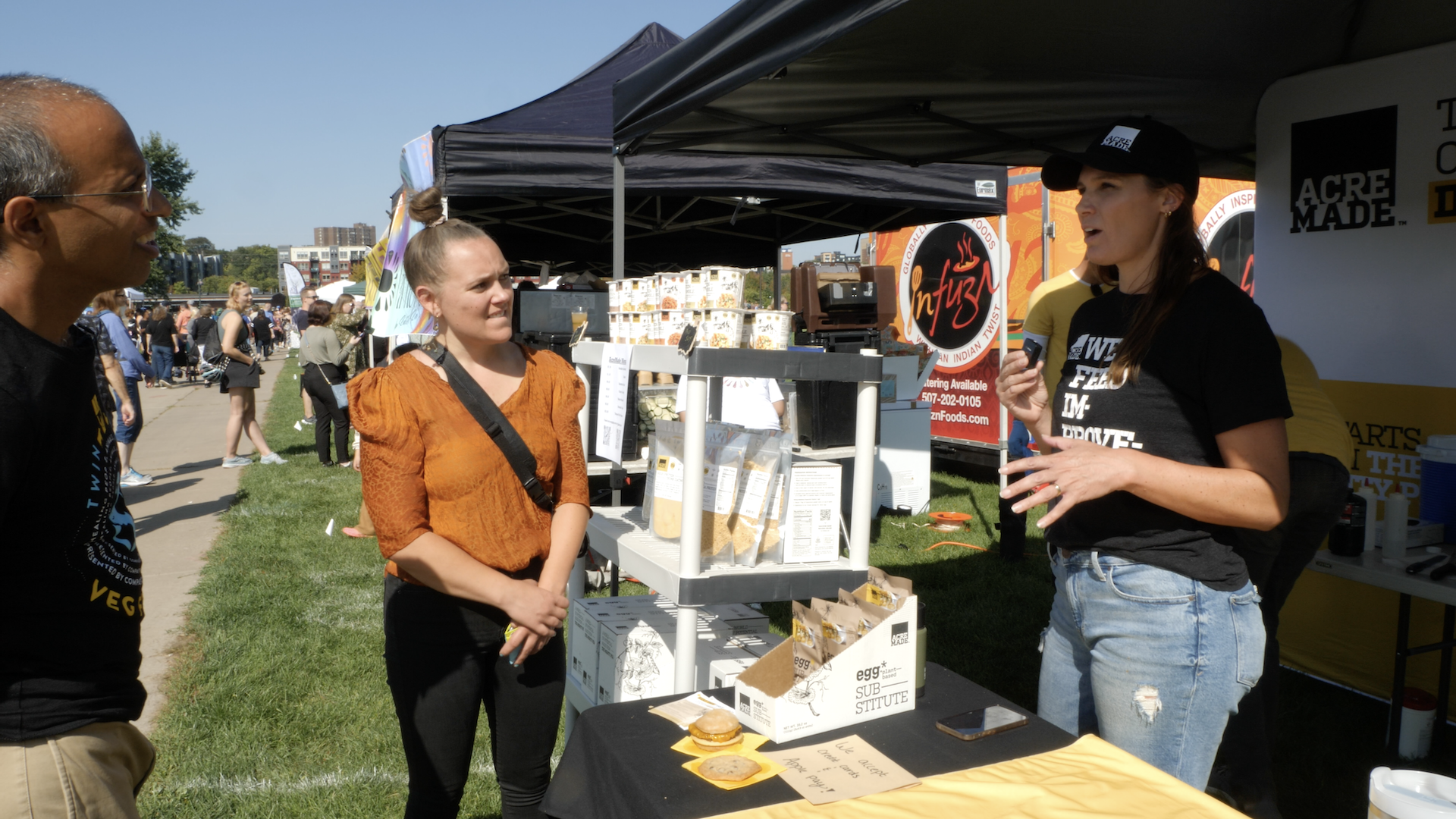Food processors are introducing new products as the public looks for more plant-based options, but for many, it's not always easy.
With three school-aged children involved in athletics and other activities, Kelli and Matt Fernholz know the routine all too well.
Many of their evening and weekend hours are spent on the go, kids in tow. Too often, dinner means pizza from the gas station or burgers and cheese sticks from fast food restaurants.
“We knew how to feed them as babies, but now we live this crazy, busy, scheduled world,” said Kelli Ferhnolz, a preschool educator in Madison.
Enough is enough, she decided. She asked her friend Amber Boyens, a registered dietitian and nutritionist in Madison, for advice.
“'How can we feed our family on the go in healthy ways that sustains us?'” Fernholz asked, in telling of the challenge her family faced.
It’s a familiar question for Boyens, whose work is all about helping people adopt healthy diets. Whether on the go or at home, she said that adding more plant-based foods to the dinner plate is important. One-half to three-fourths of the dinner plate should hold plant based-foods, such as vegetables and fruits, according to Boyens.
Plant-based meats are finding their way onto dinner plates across the country as part of this movement toward healthy diets, and that’s fine too, Boyens said. One of the best ways to introduce new foods to people is to do it in a familiar way, she said.
She doesn’t see a strong move toward plant-based meat substitutes in her rural clientele, but any shift to increase the consumption of plant-based foods can help.
“Diet change is hard,” Boyens said as she described the challenges before the cameras of Pioneer PBS as part of Episode 4 of Minnesota's Alt-Meat Revolution.
As a dietitian, many of those coming to see Boyens do so at the recommendation of their healthcare providers. That tends to be a good thing, in her experience; a prescription calling for more vegetables or fruits in a diet “is a very effective way to get more plant-based food into” the diet, she explained.
Her approach is to encourage people to make it a goal, not a directive. She encourages her clients to add foods to their diet, rather than focus on what to remove: “I like to work with people using a process of addition rather than subtraction,” she said. “What do we need to eat more of to achieve whatever your nutrition goals are?”
The Fernholzes have taken the advice to heart. “A very slow work in progress” is how Kelli described the family’s approach to a more plant-based diet. She and her husband both grew up in traditional Midwestern homes with an emphasis on meat-and-potato meals. That’s all right, but there are plenty of opportunities to incorporate more plants along with the traditional fare, according to Boyens.
Boyens' upbringing was no different. Her mother prepared delicious, home-cooked meals and always instilled the idea that good foods are important to good health. Growing up, she also had unlimited access to pop, candy and hot buttered popcorn once her dad, Maynard Meyer, started managing the local movie theater. She knows the temptations.
A heart condition in his 40s led Joel Erickson to take a serious look at his diet and avoid those many temptations. Today, he and his spouse, Jill Erickson, are Food for Life instructors with the Physicians Committee for Responsible Medicine. They spoke to Alt-Meat host Amanda Anderson at Veggie Fest, an annual event held in the Twin Cities to promote vegetarian diets.

Eating plant-based foods, exercising regularly, limiting alcohol consumption and aiming for a healthy weight are the “four prongs” the organization promotes, the Ericksons said.
“The first couple of years were really tough,” Joel told Anderson of his move to a vegetarian diet. The couple transitioned first to a Mediterranean diet before endorsing what they now describe as a vegetarian lifestyle.
Boyens is cautious about radical changes in diet.
“Food is so deeply rooted in who we are,” she said, speaking of the role culture plays in our diet. “Sometimes, when you change your food, it feels almost like you are changing your identity.”
It’s not a matter of either meat or vegetables, she explained. It’s how you put them together.
"Minnesota’s Alt-Meat Revolution" is produced in partnership with West Central Tribune and Pioneer PBS. Stay tuned for more #MeatlessInMN!
Discuss and engage with us on Facebook, Instagram, Twitter and TikTok by using the hashtags #MeatlessInMN and #MyHomeIsHere and tagging us @worldchannel. Subscribe to our newsletter and YouTube for more features including events and interviews.
Enjoy our content? Consider donating to keep important storytelling like this going, and find more on PBS Passport.



